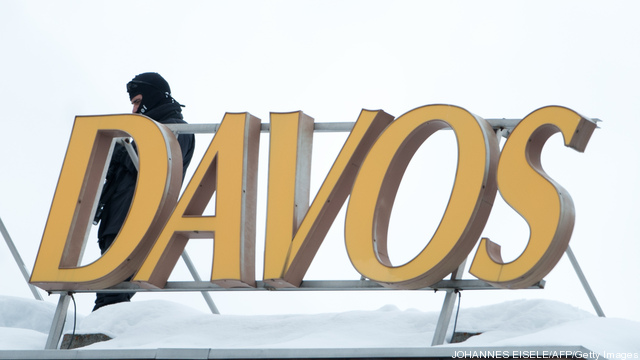
The World Economic Forum is widely known for the glittering array of its high-profile attendees and more recently for its role in annually highlighting the response of global elites to the economic crisis that accelerated in 2008 and has played out in the euro crisis and grinding developed-economy recessions since.
Issues of national security, of globalization and of the role of business in increasingly transparent societies have been raised but have attracted less attention; this year, attendees say, that is likely to change.
An armed attack and resulting hostage situation at the Al Amenas natural gas facility in Algeria run by a BP, Statoil and Sonatrach partnership (an operating and ownership structure increasingly common), alongside military intervention by the French in neighboring Mali, have focused the minds gathered in the heart of Europe back on issues of security and investment in an era of consolidating globalization. While the euro crisis and the twinned developed world employment crisis remain important, issues that more directly affect the energy business are being raised.
A focus on sustainable development, sustainable infrastructure and a transforming energy sector is self-evident at the WEF event.
“As the world struggles to emerge from a global recession and financial crisis, countries are looking for solutions to improve domestic economic performance and put people back to work,” the organization said in preparing for the event. “The energy sector constitutes a relatively modest share of GDP in most countries, except for those in which oil and gas income loom large. However, the energy sector’s impact on the economy is greater than the sum of its parts. Most importantly, almost none of the economy’s goods and services could be provided without it. Thus, stable and reasonable energy prices are needed to reignite, sustain and expand economic growth.”
The financial crisis and resulting recessions have in part driven the renewed focus on exposure to energy risk, as countries have failed to invest in sufficient replacement energy infrastructure where it is aging and in new infrastructure as their economies develop. A widespread blackout in India and the aftereffects of a weeklong blackout in New York City following the Sandy hurricane served as reminders of the importance of energy reliability in a modern economy.
The forum also opened against the background of a Presidential Inaugural Address that included a surprisingly lengthy and detailed mention of climate change. President Obama’s speech broke a multi-year silence on the issue of government response to climate change after climate talks at Copenhagen collapsed in 2009.
“The challenges of climate adaptation are particularly pressing in the developing world (although not only there as Hurricane Sandy has shown),” Swiss Re chief risk officer David Cole wrote on WEF’s site ahead of the Davos conference. “In developing countries especially, partnerships between the global insurance industry, public-sector institutions and civil society are vital to unlock innovation and create new investment opportunities. Public-private collaboration would help make available more funding for adaptation at a time when it is more urgently needed than ever.”
The focus on sustainable infrastructure amid changing global priorities echoes the insight of groups focused more specifically on energy, including the World Energy Council, currently preparing for its next World Energy Leaders’ Summit in India next month. For more on that conference, read here and to find out more about the energy sector’s response to the WEC “global energy trilemma” read more on Breaking Energy here.
